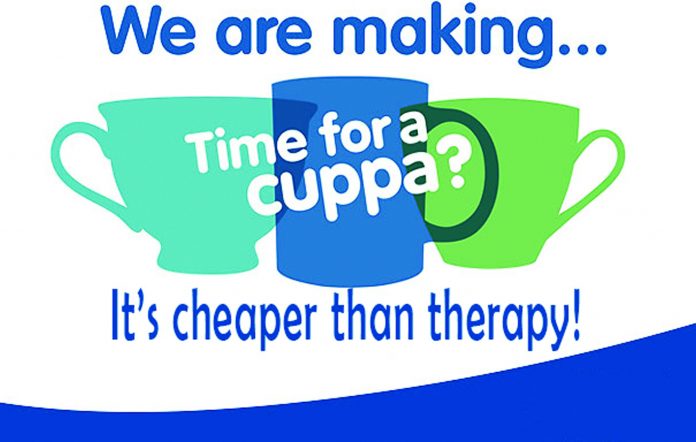
During these gloomy, cold, winter days of the post Brexit referendum, when the anointing of Donald Trump as the new leader of Western democracy confirms for many that the world is going quietly mad, there is one thing certain to cheer us up – ‘a nice cup of tea’.
Those of a certain age will know just how important tea is to the psyche and general well being of most Brits. Most of us were weaned on the stuff and it runs through our veins in copious amounts. It is what makes Britain great; it is the stuff of Empire, Winston Churchill, Shakespeare, Harry Potter, Hugh Grant and cream teas. Indeed, it is a well known truism that you are not a real Brit unless you drink at least ten cups of the stuff each day. Any less than this and you are regarded as a fraud and imposter, or maybe even a European, no argument.
During those damp, cold days in the UK, many of us would feel warmed and comforted by ‘a nice cup of tea’. During a crisis, or during those times when it is difficult to know what to say to someone who is ill or in distress, the usual British response is to “put the kettle on”. I suspect that it is one of the few things that unite the people of Britain; forget the Union flag, just bring out the Tetley’s!
There is, of course, the added advantage that as the temperature drops, you might find yourself reaching for ‘a nice cup of tea’, because of the obvious benefits of warming your hands around the cup and temporarily banishing the cold. Recent studies reveal that there is a basic psychological factor when drinking ‘a nice cup of tea’. It makes us feel warm and friendly towards others.
In one experiment, people were asked to rate strangers on how welcoming and trustworthy they thought they were. Holding ‘a nice cup of tea’ made them rate the strangers higher on these attributes, whilst holding a cold drink had the opposite effect. Expats should note from this experiment that holding a chilled glass of sangria when meeting strangers is not always such a good idea unless they have carefully thought about the possible dire consequences that may follow such an encounter.
In the study, it was found that those holding hot drinks, such as a ‘nice cup of tea’, were more likely to be generous, and less likely to display behaviour considered to be selfish. Apparently, this is due to strong linguistic and metaphorical links created in the brain by repeatedly using the words ‘warm’ or ‘cold’ to describe personalities.
Several years ago, I was involved in a survey for an expat newspaper that focussed on what items Brits miss most when living in another country. Top of the list was ‘a nice cup of tea’, closely followed by a range of other items, such as pork pies and baked beans. Although I was initially taken aback about the vehemence with which ‘foreign tea’ was criticised, I was not surprised, because I shared the general opinion expressed.
The general consensus seems to be that it is almost impossible to get a decent cup of tea in continental Europe. I know of many expats who make a special point of bringing back teabags from the UK whenever they visit, or ask friends and relatives to bring some out for them. The fact that most of the popular brands of tea are readily available from supermarkets in Europe goes unnoticed, with the fanatical claims that “Yorkshire Tea is the best in the world”, when to others it tastes exactly like all other brands available in continental Europe, which I am sorry to say is to me very similar to lukewarm dishwater.
Of course, real tea drinkers complain about the quality of the water in Europe; they will insist upon using only bottled water and certainly never water from the tap. Others complain about the temperature that the water is heated to, forgetting that a kettle is a kettle whether it is bought in Blackpool or Benidorm. Tea aficionados will complain about ‘a nice cup of tea’ being served in a glass cup rather than one of the bone china variety, an unforgivable error in Europe, but forgetting the dubious quality of the chipped mugs that are in common use in cafes all across the UK. Others will complain about the flavour of milk (if added), the quality of the sugar (if used) and indeed whether or not higher temperatures have destroyed the flavour of the tea in the packet before it is even purchased.
Personally, I have come to the view that it is nothing to do with the quality of tea, water, cups or the temperature of the water, but simply because it is European, and this is the real reason behind the Brexit referendum. If the UK Government had appointed a Minister for Tea Drinking long ago, much of the Brexit discussions could have been avoided. In any case, the availability and quality of ‘a nice cup of tea’ in Europe will continue be considered and discussed long after the Brexit negotiations are completed; after all, it is simply a question of priorities in life.
As for me, I gave up being a tea drinker almost immediately upon arrival in Spain, as I could not bear to ruin my tea drinking palate, which I now reserve for special and rare occasions, such as a National Trust cream tea during occasional visits to the UK. At a time of crisis, I resort to a nice cup of green tea, but nowadays I am a confirmed coffee drinker. Maybe I have now formally ceased to be British.
If you enjoyed this article, take a look at Barrie’s websites: http://barriemahoney.com and http://thecanaryislander.com or read his latest book, ‘Footprints in the Sand’ (ISBN: 9780995602717). Available in paperback, as well as Kindle editions.
© Barrie Mahoney




